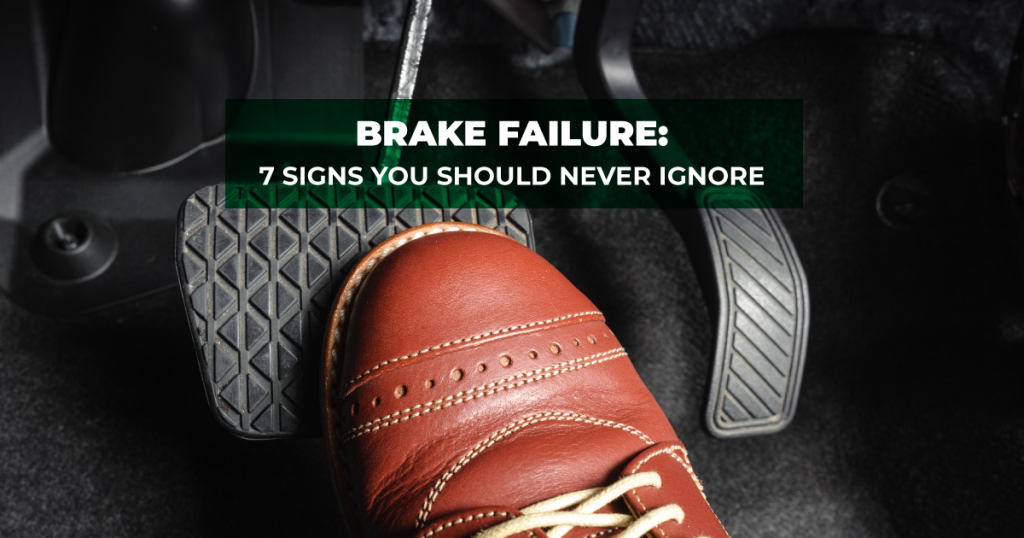It’s important to take your car to the mechanic for frequent service and maintenance check-ups. One of the things that need to be in top-notch condition is your car’s braking system. For your car to work effectively, you should regularly service your brake parts and replace them if necessary.
Luckily, your car usually gives some signs if it is time to have your brake system serviced. Since the brakes are an important part of your car’s safety feature, it is important to take the warning signs seriously. We have highlighted some of those signs below.
1. The brake lights are on

When either the yellow or red brake indicators on your dashboard lights up, it could be your car’s system drawing your attention to a potential issue. It is wise to take your car for inspection as this will help you avoid further problems. However, sometimes an engaged parking brake may turn on the indicator. Confirm that this is not the case before reporting to your mechanic.
2. Squeaking and grinding noises
When your brakes pads are words out, you may start to hear high-pitched noises that come to a halt when you apply the brakes. They are caused by the brake pads coming into contact with the rotor. If you do not replace your brake pads as soon as possible, you may end up damaging your rotor which is more expensive to fix.
When you hear a grinding sound while applying your brakes, it could be a sign that either there is some gravel stuck in the calliper unit or you are overdue for brake servicing. The gravel can just be removed but if the brake pads are totally worn out then the sound you are hearing is metal on metal creating a groove on your rotor. The grinding could also be caused by lack of lubrication in cars with rear drum brakes.
3. Leaking brake fluid

When your car brake fluids leak within the master cylinder or somewhere within the braking system, it is likely to cause a soft brake pedal. The master cylinder is where the power of your brakes originates from within it, there is a brake fluid reservoir. When you push down on your brake pedal, the pressure is created helping stop your car. If your brake fluid is leaking, your brake system won’t have enough power to come to a halt. Therefore if you notice the brake fluids leaking, contact your mechanic immediately.
4. Soft brake pedals

If you press down on your brake pedals and there is no resistance or it pushes all the way down, it’s a clear sign that you need to take your car for servicing. This could be an indication of moisture or air in the braking system. Alternatively, it could mean there is a problem with the master cylinder.
5. The car pulling to one side when braking
If you are experiencing unbalanced stopping when braking, most likely you have a calliper problem. One brake could be applying more pressure than the other. Alternatively, something is wrong with your braking hose. Either way, you will need to take your car to a technician for a check-up.
6. Rubber burning smell while driving
While driving on a steep slope and you detect a concentrated rubber burning odour whenever you brake, it could be a sign that your brakes are overheated. You need to pull over and ensure your parking brake is released and allow the brakes to cool down. Failure to do so may cause the brake fluid to heat up and may result in brake failure. Check your tires for signs of smoke. If you notice smoke being produced around your wheels, then the brake calliper may be stuck. If this is the case, contact your mechanic immediately as it may be unsafe to continue driving.
7. Bouncing up and down on sharp brakes
If you experience bouncing up and down when you brake this may not be a braking issue but rather a sign that you need to change your shock absorbers. It doesn’t mean you can ignore the bouncing because it’s not a braking issue. It is still important to contact your mechanic as soon as possible.
Conclusion
The braking system wears out over time and it’s important that you stay up to date on your major and minor repairs particularly on your braking system. Not every sound your car makes should be a cause for alarm; some of the noises may be harmless. However, you need to alert your mechanic whenever you notice something that feels different in your braking system.
